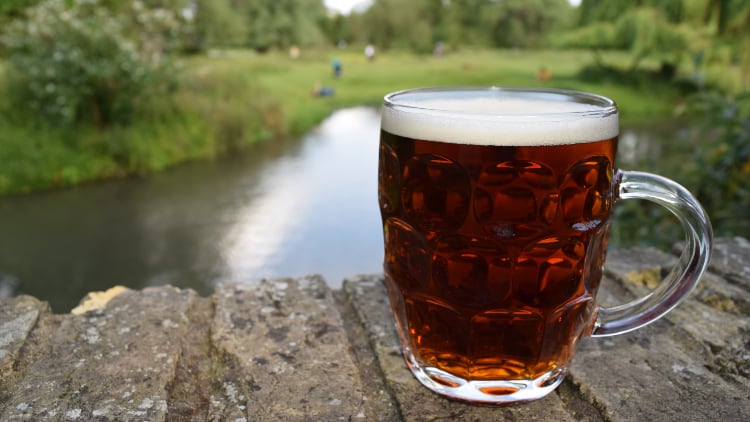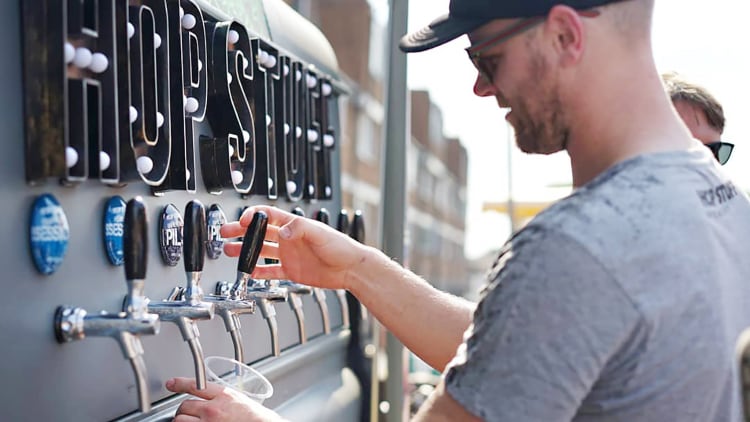I used to have a good relationship with the pint that was Greene King IPA. It was an important part of my life in my early 20s when I was at university in Cambridge. I went to what, at the time, was Anglia Polytechnic University and, although a brilliant place to study, it had a terrible student union (SU) bar that did not serve real ale. I couldn’t hack it and so persuaded my friends to boycott the bar in favour of the pub.
The Alex (which is now a hip craft beer and burgers joint) was a back street local that we must have come across because one of our friends lived nearby. Like many, if not most, of the pubs in Cambridge at the time, it was a Greene King place. Yet in the days when I had to keep reminding myself what IPA stood for, it served a lovely pint at only 23p more than the SU bar charged for some nasty imitation bitter. It had a pool table, a jukebox and a warm welcome for us. We went there every Saturday night for a long time. I can’t recall why we stopped. In any case, when we did, our new local was another Greene King pub called the Six Bells where the landlord was a real ale man who used to joke with us about how he loathed lager. So you see, Greene King didn’t used to be a dirty word for me, but I moved west to places where it wasn’t served so widely and we lost touch.
I’m still not totally sure whether the beer was effectively neutered by an altered recipe that seemed to remove all of its hoppy bitterness, or whether my taste buds changed, but a pint of Greene King IPA now tastes to me like little more than some brown malty water. So news of the brewery being sold didn’t have me worrying about a beloved beer. It felt more like hearing of the passing of an old friend who you fell out with years ago. You mourned the friendship with the person they were but because they disappeared from your life long ago it was really continued sadness over the original loss.
Losing heritage
I fear there will be greater losses to come – and not only of once-great brewers but our beer and pub culture as a whole. I know that sounds somewhat melodramatic but for me it’s personal. The whole reason I write about pubs is because they have always been a part of my life and because I love going to them.
To write off the sale of Greene King, Fuller’s and whoever is next, simply as ‘business’, is to ignore how their no longer being British companies subtly erodes our heritage. It also enables the commodification of pub culture, which in turn diminishes authenticity. Then again, we seem to have survived the Irish theme pub.
A few years back it seemed we were in a golden age of excitement around beer; so many new breweries making it and the resurgence of lost styles coupled with new ways of presenting and enjoying it. It felt like we were awash with wonderful beer choices and just needed to make sure these weren’t ignored by the average pub (if such an establishment exists).
What I see now is a hell of a lot of style over substance, with a glut of shoddy beers that appear to get away with it because they are on trend. The flip side is that more traditional beer is neglected, both in availability and keeping standards – which threatens to return us to the era of people viewing beer as a poor-quality drink. Bring this together with the sell off of some of Britain’s oldest breweries and add in the continuing onslaught of messages telling people not to drink and I get nightmares of a land with no pubs, just restaurants selling only low-alcohol options and hopped fruit smoothies marketed as ‘New England IPA’ without the booze.
Attracted by ‘real ale’
I’m happy for someone to persuade me otherwise but, for me, the craft beer bubble has burst. That’s not to say I’m no longer passionate about beer; rather the latest thing frequently disappoints and I find myself increasing attracted by the idea of ‘real ale’.
Beer made as a fashion statement is as bad as beer made purely for profit. What the industry needs most now is authenticity and integrity.




